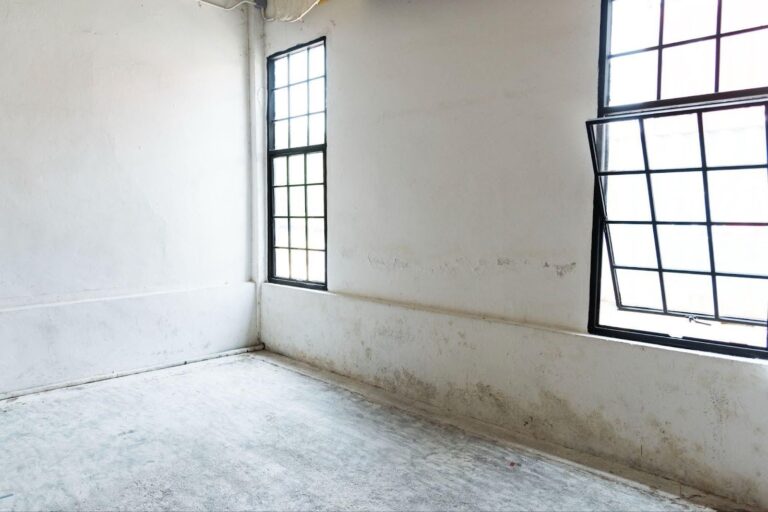Mold can be a silent invader in your home, particularly when it hides behind your walls, where it can grow undetected. It’s a serious issue because mold not only damages your home but also poses health risks. This is especially important in humid areas like Athens, Georgia, where mold can thrive if left unchecked.
Recognizing the signs of hidden mold early can help you take action before it becomes a significant problem. Throughout this article, we at Sentry Restoration will provide practical tips and methods for identifying hidden mold, explain its health implications, and guide you on what to do if you discover mold in your walls.
Common Signs That Mold May Be Hiding in Your Walls
Recognizing the signs of hidden mold in your walls is crucial for keeping your home safe. One common sign is a persistent musty odor. Even if you clean your home regularly, this smell can linger, especially in rooms like bathrooms or basements. Mold gives off a distinct earthy smell, and if you notice this odor, it’s possible that mold is growing behind your walls.
Another sign to watch for is discoloration or staining on your walls. Mold can cause yellow, brown, or even greenish spots to appear, and wallpaper may start to peel or bubble. If you notice these changes, it’s a red flag that moisture and mold could be present. Also, pay attention to any sudden increase in allergic reactions among those living in the home. While not all molds cause health problems, some can trigger allergies or asthma.
For those living in Athens, Georgia, where the humidity levels are higher, it’s even more important to stay alert for these signs. Keeping an eye on your walls can help you catch mold issues early, preventing larger problems down the line.
Tools and Techniques for Detecting Hidden Mold
Detecting hidden mold can be tricky, but several tools and techniques can help. One of the simplest methods is using a moisture meter. This device measures the moisture level in your walls. High moisture levels often indicate that mold could be growing within. Another tool to consider is a borescope, which is a small camera that can be inserted into walls through a tiny hole to give you a visual check for mold.
There are also more advanced methods, like infrared cameras, that detect temperature variations in your walls. Mold-infested areas often appear cooler due to moisture. Another useful technique is taking air samples. Mold spores in the air can be detected with specialized equipment, which can confirm the presence of mold even if it’s hidden.
Regular inspections of areas prone to moisture, such as bathrooms and basements, are crucial. For those in Athens, Georgia, monitoring humidity levels in your home can also help since higher humidity can encourage mold growth. By using these tools and techniques, you can detect hidden mold early and take action to prevent further damage.
Health Symptoms Linked to Mold Exposure
Mold exposure can have various health effects, especially if it goes unnoticed for a long time. One common health symptom is respiratory issues. People living in mold-infested homes may experience chronic coughing, sneezing, and shortness of breath. Asthma sufferers may find their symptoms worse around the mold. Children and the elderly are often the most affected.
Another health concern linked to mold exposure is allergic reactions. These can range from mild irritation to severe responses like rashes, hives, or itchy eyes. Some people might even develop sinus infections due to prolonged exposure. In extreme cases, mold can contribute to serious infections, particularly in those with weakened immune systems.
If you notice any of these symptoms in your household, it is essential to investigate the possibility of hidden mold. This is especially important for people living in areas prone to high humidity, like Athens, Georgia, where mold can develop more easily. Keeping an eye on your health and watching for these symptoms can help you catch mold problems early.
Steps To Take If You Find Mold in Your Walls
If you find mold in your walls, the first step is to address the source of moisture. Without fixing the underlying issue, mold will likely return even after it is cleaned. Identify and repair any leaks or high humidity problems. Use dehumidifiers to lower moisture levels in your home, especially in areas like basements or bathrooms.
Next, you should remove the mold safely. Small areas of mold can sometimes be cleaned using commercial mold removal products. Ensure you wear protective gear, including gloves, masks, and eyewear, to avoid direct contact with mold spores. For larger infestations, it’s best to contact professionals. They have the equipment and expertise to remove mold without spreading spores throughout your home.
Living in Athens, Georgia, you know how quickly mold can grow in a humid environment. Taking quick action to control moisture and remove mold will protect your home and your health. Remember, it’s important to follow up with regular inspections to ensure the mold doesn’t return.
Conclusion
Mold in your walls is a problem that requires immediate and effective action. From recognizing the common signs of hidden mold to understanding the health risks associated with mold exposure, homeowners must stay vigilant. Athens, Georgia, residents need to be particularly mindful of the effects of high humidity and the potential for mold growth in their homes.
For expert help in mold remediation in Athens, Georgia, look no further than Sentry Restoration. Our team is dedicated to ensuring your home stays safe and mold-free. Reach out to us today to take the first step towards a healthier living environment.



